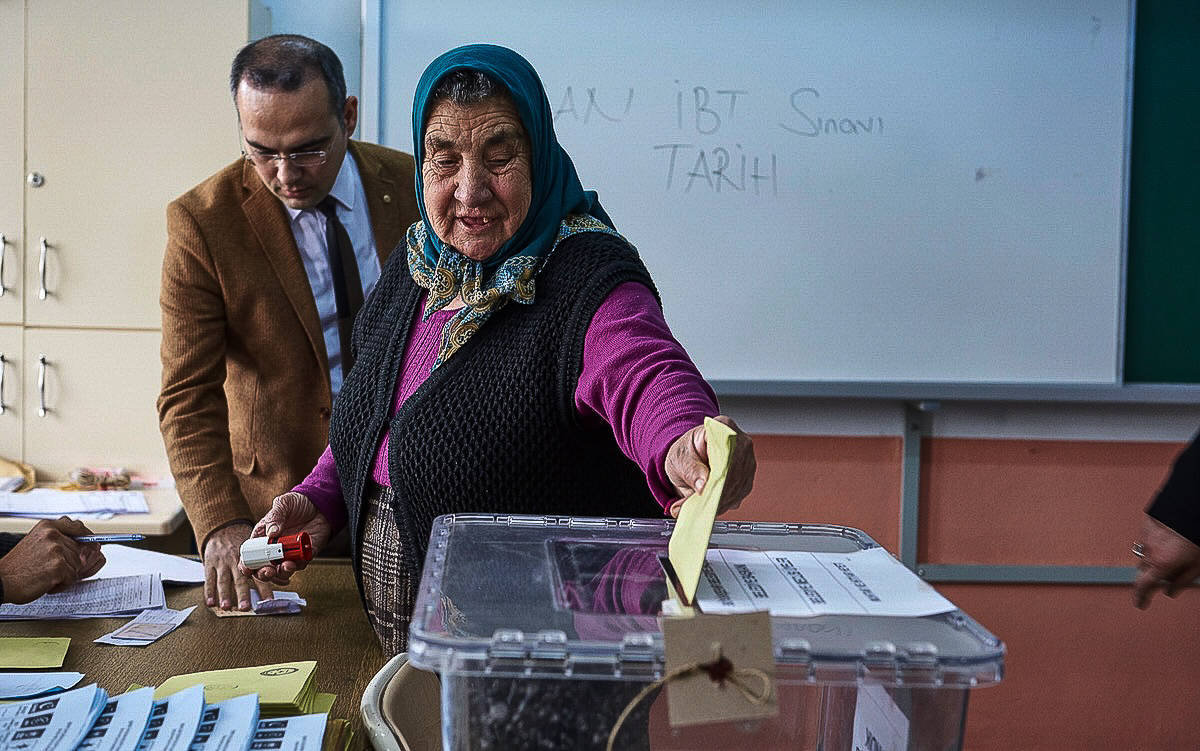In a recent public opinion survey conducted by the Yöneylem Social Research Center between December 28-29, it becomes evident that Turkey navigates a fragmented political landscape dominated by the ruling AKP and the main opposition CHP.
The survey sheds light on the shaping political preferences of voters between the general elections in May 2023 and the local elections in March 2024.
When respondents who did not answer the question about "what if the general election were held this Sunday" or stated they were "undecided" or "would not vote" had their votes redistributed, 33.3% sided with the AKP, 19.9% with the CHP, 10.3% with the two rival ultra-nationalist parties of the MHP, and 5.5% with the Good Party (İYİ Party). The Peoples’ Equality and Democracy Party (DEM Party) seems to have declined to 9.4%, falling 30% below its 2015 performance.
This picture suggests that no party can attain power without alliances. AKP appears dependent on MHP to sustain its rule. Additionally, İYİ Party and its leader Meral Akşener have not got positive responses from voters after the 2023 general elections.
Bad governance
Despite the political fragmentation, responses to questions about general governance, the economy, and education indicate that voters converge around common concerns. Over 50% of respondents, almost 60%, express that the country is "badly governed." Only 25% believe it is "well-governed," suggesting that a majority objectively observes the issues.
When asked which party can address Turkey's problems, only 27% believe that the AKP, the major partner in the current government, can solve the issues. This aligns with the 24.2% who think Turkey is well-governed under AKP. Those considering continuing with AKP do not constitute a significant bloc. However, the absence of a dominant party against AKP positions "none of the above" as a potential opposition force, indicating a search for a party capable of addressing issues.
Economic woes
In response to the question about the causes of economic problems, a significant 72.8% overwhelmingly agree that the root lies in the government's economic policies. Only 24.9%, mainly AKP's core supporters, disagree. This convergence reflects a broader consensus on a fundamental issue.
Notably, 52.9% do not agree with the narrative blaming "external forces' attacks" for economic problems, even though this aligns with AKP voters (25.2%). This contradiction suggests a challenging and rigid cluster around an "irrational" belief.
One exceptional result is the widespread agreement (across all responses) against the "National Education Minister's insistence on collaboration with religious groups in schools," challenging the assumption of a generally "laid-back" character of education. This consensus extends beyond expectations, encompassing half of the AKP voters.
Research methodology
These insights are derived from the December 2023 Research Summary of the Turkey Politics Panel (TSP), a survey conducted by the Center for Behavioral Social Research across 27 provinces and 26 statistical regions with 2,400 panelists. The sample size enables a +/-2% margin of error at a 95% confidence interval for national-level analysis.
In conclusion, this survey illuminates the intricate dynamics of Turkish politics, showcasing the nuanced preferences and shared concerns of voters amidst a fractured political landscape. (AEK/VK)






